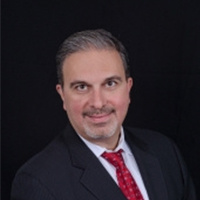 Williston Park Divorce & Family Law Lawyers, New York
Williston Park Divorce & Family Law Lawyers, New York
Sponsored Law Firm
-
 x
x

Click For More Info:
-
Law Office of Adrienne D. Edward P.C.
549 Summit Ave Jersey City, NJ 07306» view mapCriminal Defense & Family Law Effective Legal Strategies
Our practice is committed to serving the unique needs of every client. We strive to make you feel heard, valued, and empowered at every stage of the legal process.
201-420-8850
Sponsored Lawyers
1-10 of 586 matches
Divorce & Family Law, Child Custody, Child Support, Adoption, Alimony & Spousal Support
Amy Sklar has practiced with several well-respected law firms and independently on Long Island. She has over 30 years of legal experience focusing on Matrimonial and Family Law. She also has provided her clients with her expertise in Real Estate Law, both in connection with a pending divorce matter or otherwise. Ms. Sklar has successfully negotiated pre-nuptial, post-nuptial and separation agreements as well as stipulations of settlement. Her practice includes litigation in the Family Court, Supreme Court and Appellate Courts of New York. She has tried numerous divorce and annulment cases, custody hearings, domestic violence hearings, support hearings, and related issues both pre- and post-judgment. Her practice includes litigation in the Family Court, Supreme Court and Appellate Courts of New York. Ms. Sklar is a member of the New York State Bar Association. Some of her more notable cases have been covered by the New York Law Journal and various other periodicals.
(more)Divorce & Family Law, Estate
The Law Office of Douglas P. Mayer is a full-service law firm concentrating in Matrimonial and Family Law, Personal Injury Litigation, Wills and Estates, Traffic Law, Criminal Law, and Professional License representation. Our office is centrally located in Nassau County, New York. We represent clients in Nassau, Suffolk, Queens, Kings, Bronx, Richmond and New York City. Navigating every-day life usually is complex, yet enjoyable and rewarding. Whether going to work or school, going on vacation, raising a family, or partaking in leisurely activities, these events occur every day, and most are complicated by forces well within your control and understanding. Occasionally, however, these enjoyable events encounter complex legal obstacles that are not within your control and certainly are everything but simple to understand. Those are the times you need an attorney to assist you in fully comprehending the ramifications of decisions you made and will need to make. That is what my law firm is ready to offer to you. Legally sound, intelligent, and understandable representation. I take great pride in helping my clients understand how the legal system, laws, and litigation work at all stages and in all aspects of your daily life. I work closely with my clients in evaluating situations they think might arise, and if so, the most cost-effective approach in handling those potential situations. I counsel clients that have pending legal issues and are in need of an attorney that can explain, in lay terms, what is happening in that particular matter and how best to resolve the issue in the most cost-effective manner. Essential, my office offers the legal services you need with the attention you deserve.
(more)Divorce & Family Law, Child Custody, Estate, Wills & Probate, Elder Law


 Adrienne D. Edward Jersey City, NJ
Adrienne D. Edward Jersey City, NJ Practice AreasExpertise
Practice AreasExpertise




